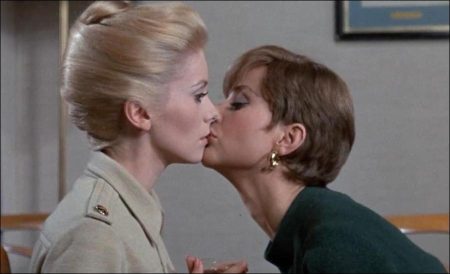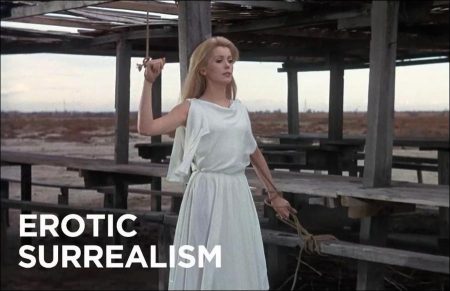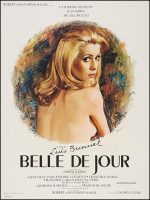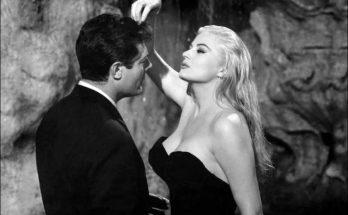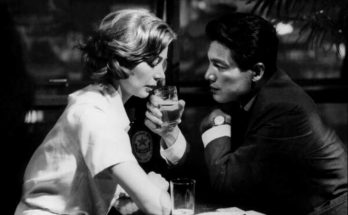Belle de Jour is a film in which a novel published in 1928 was shot in the atmosphere of the 1960s. The work, which reveals that sexual taboos were destroyed in literature before cinema, is reflected in a different subtlety from Luis Bunuel’s frame.
Instead of Severine, the bourgeois housewife, we take a long look at Severine, who spends her day in the brothel. Severine, who chooses to be Miss Day, finds herself in a brothel of her own class, even as she tries to satisfy her sexual hunger. It is a lily flower that only opens during the day. She’s called Belle de Jour in her secret job.
She seems to have found a way to get out of his unhappy marriage, which looks ideal from the outside but is essentially blended with sexual frigidity and emotional distance. At first he is not sure what he is doing and he is alien to the environment he enters, but it does not last long. He makes love to men he doesn’t know, succumbs to the different desires of each and continues to imagine his own fantasies with great desire. As she begins to accept herself and gain identity in this world, she begins to develop closer feelings towards her husband. In this paradox, many questions remain unanswered, in fact.
Belle de Jour, a novel published in 1928, was filmed in the atmosphere of the 1960s. The work, which reveals that sexual taboos were destroyed in literature before cinema, is reflected in a different subtlety from Luis Bunuel’s frame. Shoots erotic scenes without showing sexual activity.
The film, in which sadomasochistic emotions and strong sexual desires are processed, proceeds through a woman’s psyche, examining emotion and asking questions. Why does Severine not live with her husband who lives a life surrounded by the possibilities of the bourgeoisie, and why would she prefer to be a vard prostitute gündüz (day shift)?
With little talk, little laughing and a thoughtful sullen face, Severine embraces all her imperfections one by one in her seemingly flawless life. The window of your life is like a spider web. Perhaps he drowns in the meaninglessness of his world, where he often comes and stands on the edge and crosses his arms.
The day he goes to the brothel and gets himself accepted to work, he sets his hour as noon. Every day at five o’clock he will return to his life. Perhaps he decides to make a final move to discourage him and goes to the hospital where her husband, a doctor, works, but her husband is still busy and sends him back. He decides to start his first day at work with the excuse / sign of the situation.
In all her fantasies, Severine is a woman who is finally punished. Punish yourself for what? This is one of the thousands of questions hidden in sexuality. Perhaps the ambiguous desire of the child is drawn within the boundaries of the problem of marriage and the social environment created by the early youth, the law of nature and the rules of society. It cannot be reduced to concrete and continues to oscillate in the void. Before we get to know Severine, we only see her in her marriage.
Although the sounds and symbols used in the film evoke sexuality, it is not clear what they are. Does the story that seems passive but revolves around Severine with her choices try to understand the bir insides ın of a woman or does it go to the basis of esthetized sexual deviations?
The professor, obsessed gangster, who likes obedience and snoring, is a family friend who annoys Severine about her interest in a disturbing dimension. and many ideas can be executed through obsessions. Miss Jour, whose film’s end is left open, leads us to a questioned loneliness through Severine’s ızlı loneliness Sever.
Adapted from the novel by Joseph Kessel, Miss Daylight was written and directed by Luis Bunuel and Jean Claude Carriere. Catherine Deneuve and Michel Picholi play the leading roles.
Belle de Jour(1967)
Directed by: Luis Bunuel
Starring: Catherine Deneuve, Jean Sorel, Michel Piccoli, Geneviève Page, Pierre Clémenti, Françoise Fabian, Macha Méril, Maria Latour, Claude Cerval, Bernard Musson, François Maistre
Screenplay by: Luis Bunuel
Production Design by: Robert Clavel
Cinematography by: Sacha Vierny
Film Editing by: Louisette Hautecoeur
Costume Design by: Hélène Nourry
Set Decoration by: Robert Clavel
Distributed by: Valoria Films
Release Date: May 24, 1967
Visits: 248
